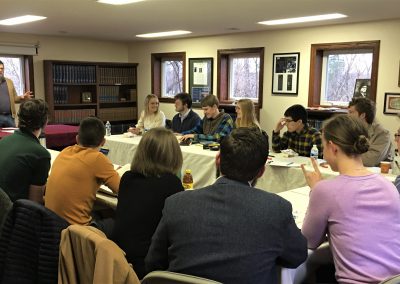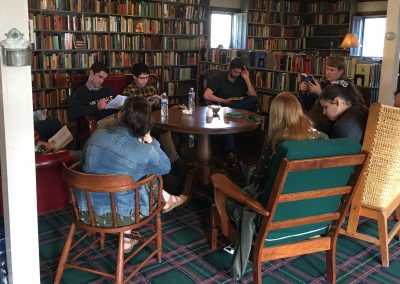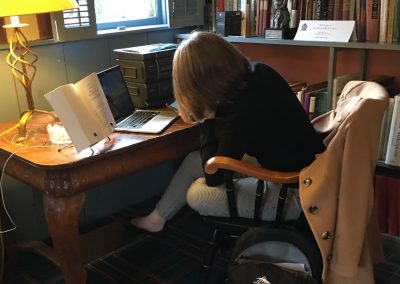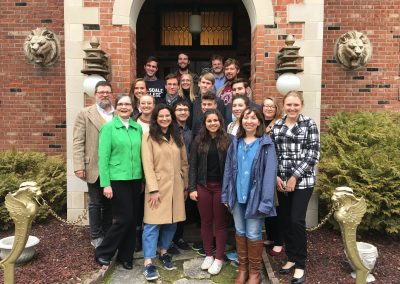Seminar Explores Shakespeare’s Plutarch
On March 25 – 27, Hillsdale College students gathered for a seminar at the Kirk Center on the topic: “If You Have Writ Your Annals True: Plutarchan Lives and Shakespearian Tragedies.” Students read aloud selections from the plays Coriolanus and Julius Caesar, as well as attended lectures and participated in discussions.
Indeed, Plutarch’s influence extended even beyond Shakespeare’s time to eighteenth-century America. As Russell Kirk noted, “Through his Lives of the Noble Grecians and Romans, Plutarch came to influence Americans’ thought more (with the possible exception of Cicero) than did any other classical writer.” Seminars such as this one convey through imaginative literature, drama, and history a deeper understanding of our common cultural heritage.
More From Our Highlights & News
2024 Richard D. McLellan Prizes winners announced
Our Inaugural McLellan Prizes Award Gala will honor grand prize recipient, Greg Lukianoff, and two academic award winners, Josiah Joner and Samuel Goldman.
Announcing the Inaugural Richard D. McLellan Prizes Award Gala
On December 5, 2024, the Russell Kirk Center will host the inaugural Richard D. McLellan Prizes Award Gala in Grand Rapids, Michigan, at the historic Amway Grand Hotel.The event, hosted by a distinguished prizes Jury, will honor the grand prize recipient of the 2024...
The Richard D. McLellan Prizes in the Wall Street Journal
On Thursday, May 23rd, the Wall Street Journal ran an op-ed that former Michigan Governor John Engler and Kirk Center CEO Jeff Nelson wrote announcing a new Kirk Center initiative aimed at offering a constructive response to the free speech and academic freedom...
Remembering Russell Kirk on the 30th Anniversary of his Passing
This present life here below, Kirk had perceived often in his mind’s eye, is an ephemeral existence, precarious, as in an arena rather than upon a stage: some men are meant to be gladiators or knights-errant, not mere strolling players. Swords drawn, they stand on a...



